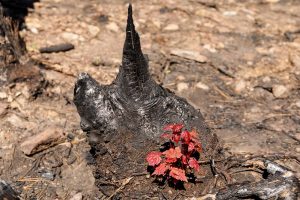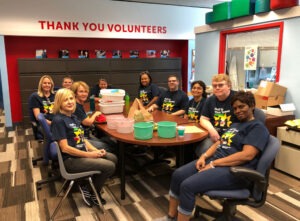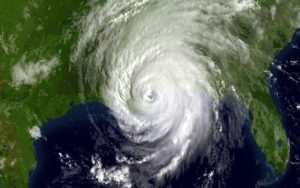
November 30, 2016; WBIR
Wildfires fueled by a drought and 90 mph winds consumed more than 15,000 acres of the Great Smoky Mountains in eastern Tennessee on Monday night and Tuesday. As of this morning, there were seven deaths and at least 53 people have sought medical treatment. More than 14,000 people evacuated Gatlinburg, Pigeon Forge, and other parts of Sevier County while emergency responders worked to contain a blaze and to care for those injured and made homeless.
More than 10,000 Sevier County residents are without power. Hundreds of homes and businesses were severely damaged or destroyed. Roads leading into Gatlinburg remain closed to traffic. Tennessee Governor Bill Haslam said that it was the state’s largest fire in more than 100 years. None of the deceased have yet been identified. Some people, including vacationers, are unaccounted for. The Tennessee Bureau of Investigation has set up a hotline (1-800-TBI-FIND) to coordinate reports of missing persons.
The governor, emergency responders, and others discuss the emergency in this video. The local American Red Cross representative appears at about the 14-minute mark and pleads with the television viewers to not bring in-kind donations to the emergency shelters for the same reasons we are familiar with in other natural disasters, such as during the flooding in Baton Rouge last August.
Sign up for our free newsletters
Subscribe to NPQ's newsletters to have our top stories delivered directly to your inbox.
By signing up, you agree to our privacy policy and terms of use, and to receive messages from NPQ and our partners.
According to an earlier NewsChannel 5 report, the Red Cross is far from alone in responding to this emergency. NewsChannel 5 partnered with the Community Foundation of Middle Tennessee (which addresses the needs of 40 counties) to create and encourage gifts to be made to the Gatlinburg, Pigeon Forge and Sevierville Emergency Response Fund. Grants from the Fund will be made to nonprofits providing assistance, especially to meet long-term needs.
All middle and east Tennessee Kroger stores, Northern Alabama Kroger stores, and Southern Kentucky Kroger locations are collecting financial donations from customers that are being forwarded directly to the East Tennessee Chapter of the American Red Cross. The company will also make a $10,000 corporate contribution to the relief efforts. The First Tennessee Foundation will match gifts to the East Tennessee Red Cross up to $50,000. A text-to-donate solution (REDCROSS to 90999) augments the American Red Cross online giving portal. Dolly Parton just announced that her foundation would donate $1,000 per month for six months to anyone who lost a home in the fire. These are a few among many initiatives underway in this community to bring help and hope to those affected by this wildfire.
NPQ writes regularly about civil society response to natural and manmade disasters. One subject in particular that has come up over the past few years is the consequence of the American Red Cross regionalizing its services and changing some aspects of its service delivery model. These changes were intended to eliminate redundancy and to reduce the costs of delivering services. Organization-wide reductions were implemented while attempting to preserve their field-based structure. There remains a question as to how successful they were in ensuring that the decision-making people and resources are closest to the people and communities served.
It would appear that the American Red Cross is a vital and competent participant in the recovery effort in eastern Tennessee following this disaster. But what is obviously also on display in Sevier County is the evidence of state and local emergency managers having ensured coordination with the American Red Cross and the many other nonprofits and initiatives through pre-disaster readiness, response and recovery planning.
Here and across the country, communities of all sizes work together throughout the year before disasters strike to plan coordination. In so doing, they come to understand the capacity and capability of each emergency responder. This is what makes America great—civil society in action.—James Schaffer













